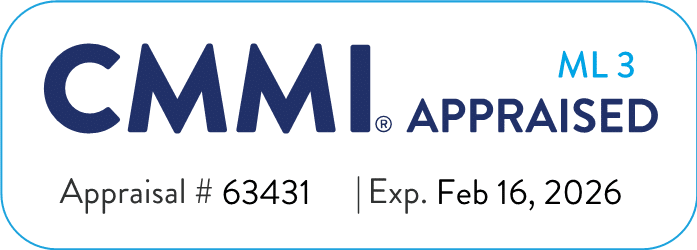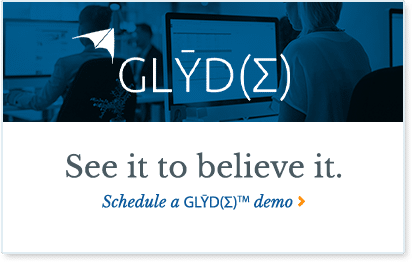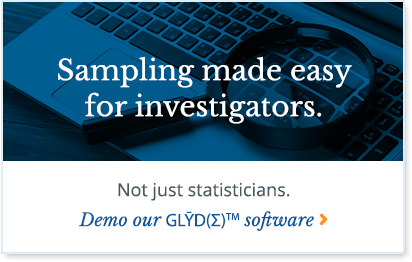When performed correctly, statistically valid sampling and extrapolation can be a powerful tool, allowing for the effective use of audit and investigative resources. Statistically valid sampling allows organizations to collect information about a particular universe for a relatively low cost. Rather than incurring the time and expense of reviewing the entire universe, the conclusions drawn from the sample can be extrapolated to the universe. When sampling and extrapolation are performed using a statistically valid methodology, these conclusions are scientifically and legally supported.
Sampling Methods Used in Health Care Audits and Investigations
In health care program integrity, samples of claims are reviewed to determine whether payments for services were appropriate. Results of these reviews are then extrapolated to the population of claims to identify overpayments made to a provider, group of providers, or for a benefit overall. Medicare, Medicaid, and private health plans often seek overpayments from a single provider. In these cases, program integrity organizations and health plans are faced with a choice of how to select claims to include in their audit or investigation. They can review all claims, review a non-statistical sample of claims, or review a statistically valid sample of claims.
The first option, reviewing all of a provider’s claims, is normally cost- and time-prohibitive. While this has the potential to identify all overpayments for a provider, the costs associated with reviewing a large number of claims will likely exceed the identified overpayment, making this option a non-starter for most organizations.
Many organizations use the second option, non-statistical sampling methods, such as selecting the 10 highest paid claims for review. Non-statistical sampling methods allow organizations to control the size and make-up of their samples, which also allows them to control the resources need to review the sampled claims. However, any overpayments identified will be limited to these 10 claims.
Learn How GLȲD(Σ)TM can simplify data analysis
A Better Approach: Statistical Sampling for Audits and Investigations
This brings us to the third option, statistically valid sampling, such as simple random sampling or stratified sampling. A statistically valid sample must have a clearly defined universe and each sampling unit must have a known, non-zero probability of selection. Statistically valid samples are designed to reach a certain level of precision, or how close the sample can come to approximating the population. When samples meet these conditions, the overpayment identified in the sample can be extrapolated to the provider’s universe of paid claims.
Statistically valid sampling and extrapolation can result in significantly larger overpayments for providers while still limiting the costs of review. An example adapted from actual sampling and extrapolation work performed by IntegrityM best illustrates this point. A statistically valid sample for a provider with just over 10,000 claims consisted of approximately 100 claims. Medical review of this sample resulted in an identified overpayment of approximately $6,000. When extrapolated to the provider’s universe of claims, the total overpayment to this provider was over $500,000. Reviewing only about 1 percent of a provider’s claims allowed for a valid estimate of the full overpayment amount made to the provider.
Statistical Sampling and Extrapolation Software
Statistically valid sampling and extrapolation can significantly increase the return on investment (ROI) for audits and investigations. However, these processes take time and statistical expertise and are often subject to strict guidelines imposed by the Centers for Medicare & Medicaid Services (CMS), state law, or contract agreements. Fortunately, IntegrityM has developed a solution that makes statistically valid sampling and extrapolation possible for all organizations. GLȲD(Σ)TM is a statistical sampling and extrapolation software that allows users at all levels to perform efficient, repeatable, and defendable samples and extrapolations. GLȲD(Σ)TM takes the majority of the manual steps out of the sampling and extrapolation process and performs the complex calculations in just minutes, not hours, which also increases ROI.
The sampling and extrapolation methodology of GLȲD(Σ)TM is compliant with CMS requirements and meets additional internal standards that IntegrityM has established throughout our years of experience with sampling and extrapolation. GLȲD(Σ)TM can also accommodate specific sampling and extrapolation requirements that your organization may face to maximize the time saved.
Contact IntegrityM
For more information on GLȲD(Σ)TM or IntegrityM’s sampling and extrapolation expertise, contact us at (703) 535-1400. Our experts are happy to discuss how our sampling methods and statistical software can help increase the ROI on your next audit or investigation.











